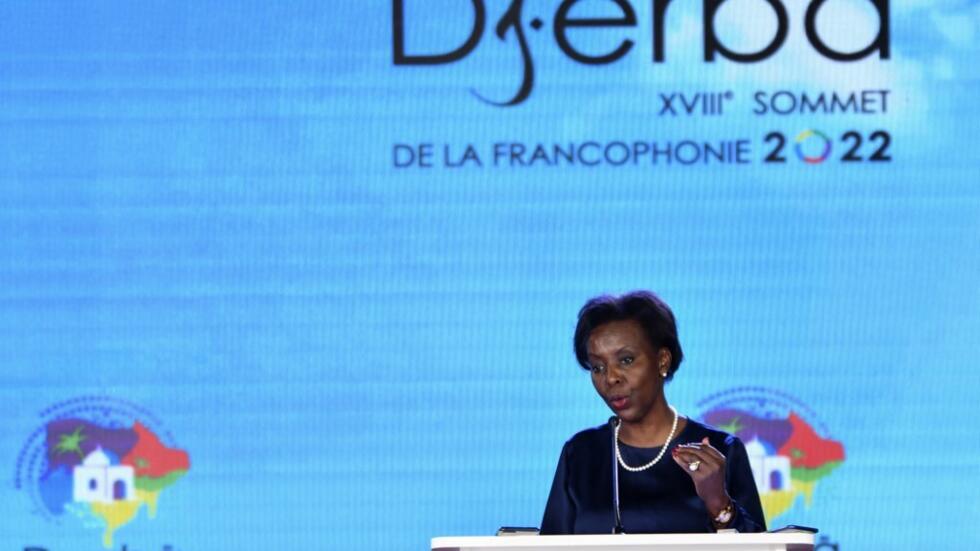French-speaking bloc examines unrest in Africa
Facing calls to do more to resolve global crises, the world's French-speaking leaders met in Tunisia Sunday to discuss growing instability and popular discontent in francophone Africa.
Issued on:

But tensions crept into the International Organisation of Francophonie (IOF) conference itself when the Prime Minister of the Democratic Republic of Congo, Jean-Michel Sama Lukonde, refused to pose for a photo next to Paul Kagame, President of Rwanda.
The DRC accuses Rwanda of supporting M23 rebels who have seized swathes of territory in its eastern region, displacing tens of thousands of people and igniting regional tensions.
The head of the 88-member IOF bloc, Louise Mushikiwabo, who was re-elected for a second term on Sunday, said that "all the conflict zones were the subject of long debates".
"The IOF is an organisation that can support and catalyse (efforts) to mediate between parties in conflict," she said.
The organisation, whose annual budget is under 100 million euros, has been accused of being "powerless" in the face of fraudulent elections, power grabs and coups in many of its member states.
Ahead of the summit on the Tunisian island of Djerba, Mushikiwabo said that "the defiance that we're seeing among young people in francophone Africa comes from political disillusionment" and frustrations over daily life.
XVIIIe Sommet de la Francophonie : @LMushikiwabo a été réélue Secrétaire générale de la #Francophonie pour un second mandat. #SommetDjerba2022 pic.twitter.com/jiTDGDXNUP
— La Francophonie (@OIFrancophonie) November 20, 2022
The IOF, founded in 1970, aims to promote the French language, develop economic cooperation and help mediate international conflicts.
Many African leaders have expressed dismay at the West's rapid response to the war in Ukraine, in contrast to conflicts in their own countries.
Still, French President Emmanuel Macron said "a declaration of all the members" had stated "a very clear position on the war launched by Russia in Ukraine".
'Diplomatic role'
Macron also said Saturday that the IOF should reclaim its diplomatic role, and Paris later announced that it would seek to take on the organisation's rotating presidency from 2024.
Senegal's President Macky Sall and Canadian Prime Minister Justin Trudeau were also among the leaders attending the two-day gathering that ends on Sunday.
This year's conference is a diplomatic boon for Tunisian President Kais Saied, whose government has faced international criticism since a sweeping power grab last year in the only democracy to have emerged from the Arab Spring uprisings.
Trudeau told journalists that Canada was "preoccupied by the current situation" in Tunisia, and said he hoped elections in December, for a largely powerless parliament, would lead to "a democracy in good health".
(with AFP)
Daily newsletterReceive essential international news every morning
Subscribe